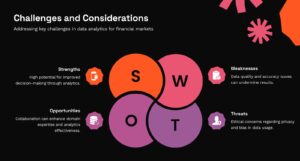
In today’s rapidly evolving mental health landscape, artificial intelligence (AI) is making waves with its potential to transform the field. From early detection and personalized treatment to 24/7 support, AI offers a range of capabilities that could significantly enhance mental health services. However, while these advancements are exciting, it’s crucial to remember that the heart of effective mental health care still lies in the human connection and empathy that AI cannot replace. For the future of mental health care to be truly revolutionary, we need to strike a balance between leveraging AI’s strengths and preserving the irreplaceable human touch.
AI’s Transformative Potential
AI brings several promising enhancements to mental health care:
- Early Detection and Diagnosis: AI excels at analysing large volumes of data, including speech patterns and electronic health records, which can lead to earlier identification of mental health conditions. For instance, natural language processing (NLP) algorithms can pick up on subtle changes in language or sentiment, potentially indicating issues like depression or anxiety. This ability to detect problems early allows for timely interventions, which can make a significant difference in treatment outcomes.
- Personalized Treatment Plans: One of AI’s key strengths is its ability to process individual patient data to tailor treatment plans. Machine learning models can analyse patterns from previous cases to recommend therapies that are likely to be effective for each person. This level of customization is a step beyond the traditional one-size-fits-all approach, potentially leading to more successful and efficient treatment.
- 24/7 Support Through Chatbots: AI-powered chatbots and virtual assistants provide immediate, round-the-clock support for those in need. These tools can offer information, track mood, and suggest coping strategies. While they aren’t a replacement for professional therapy, they can serve as valuable supplementary resources for people seeking help outside regular office hours.
- Data-Driven Insights: AI’s capability to uncover trends and correlations in mental health data offers new insights into mental health conditions. By analysing factors such as environmental influences and lifestyle choices, AI can help in developing proactive management strategies and interventions.
The Essential Human Element
Despite AI’s capabilities, certain aspects of mental health care highlight the indispensable role of human professionals:
- Empathy and Connection: The therapeutic relationship is built on empathy and human connection. Patients need to feel understood and validated, something that AI currently cannot provide. The genuine engagement and emotional support of a therapist are crucial for effective therapy.
- Complex Decision-Making: Treating mental health conditions involves complex decision-making that considers a patient’s personal history, values, and unique circumstances. Human therapists use their experience and judgment to navigate these nuances, an area where AI’s data-driven approach falls short.
- Ethical and Privacy Concerns: The use of AI in mental health care raises important ethical and privacy concerns. Ensuring the confidentiality and security of sensitive mental health data is vital, and human oversight is essential to address these concerns and maintain ethical standards.
- Adaptability and Intuition: Therapists bring adaptability and intuition to their practice, adjusting their approaches based on real-time feedback and subtle cues during sessions. This responsiveness is key to addressing the complex and evolving needs of each patient, something that current AI systems cannot replicate.
A Collaborative Future
The future of mental health care lies in the collaboration between AI and human professionals. AI can enhance diagnostics, personalize treatment, and provide ongoing support, but it should complement rather than replace human involvement. Integrating AI tools in a way that supports and augments the work of mental health practitioners will lead to a more effective and compassionate care system.
In conclusion, while AI offers exciting advancements in mental health care, its true potential is realized when combined with human expertise. By balancing technological innovation with the essential human touch, we can create a mental health care system that is both innovative and empathetic, ultimately benefiting those who seek support and healing.

Author – Shresth Singh
DPS RK Puram
Stay tuned to News Now Nation for updates and more news.
Follow us on social media for real-time news updates:








